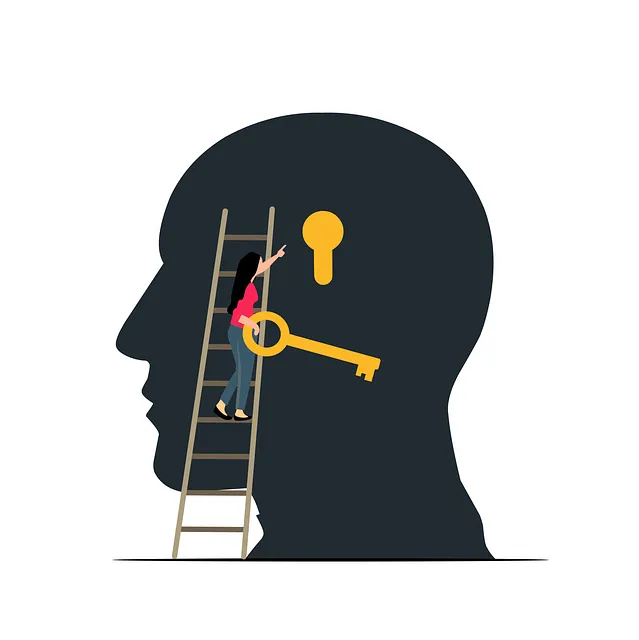Coping skills are vital for maintaining mental well-being, as they help manage stress, regulate emotions, and adapt to life's challenges, according to healthcare experts like Golden Kaiser Permanente. By recognizing personal strengths and adopting strategies such as mindfulness, exercise, or social support, individuals can enhance resilience and navigate daily pressures effectively. Golden Kaiser Permanente Psychiatry offers comprehensive services, education, and evidence-based practices to empower patients with tailored coping tools through community outreach. Research shows that regular physical activity, a key focus of their expertise, can reduce anxiety and depression symptoms. Developing effective coping skills, including mindfulness meditation, journaling, and connecting with communities, significantly improves one's ability to cope with life's challenges and contributes to enhanced mental health and resilience.
“Unraveling the power of coping skills is a journey towards holistic mental well-being. This comprehensive guide explores essential strategies to navigate life’s challenges. We delve into ‘Understanding Coping Skills’ as the cornerstone for mental resilience, highlighting the pivotal role played by Golden Kaiser Permanente Psychiatry in equipping individuals with effective coping techniques. By identifying personal mechanisms and integrating practical tools, readers will unlock long-term resilience. Discover how these strategies, accessible through the expert guidance of Golden Kaiser Permanente psychiatry (phone number: [insert number]), transform daily life into a symphony of balanced mental health.”
- Understanding Coping Skills: A Foundation for Mental Well-being
- The Role of Golden Kaiser Permanente Psychiatry in Teaching Coping Strategies
- Identifying Personal Coping Mechanisms and Their Impact
- Developing Effective Coping Skills: Practical Techniques and Tools
- Integrating Coping Skills into Daily Life for Long-term Resilience
Understanding Coping Skills: A Foundation for Mental Well-being

Understanding coping skills is a fundamental aspect of fostering mental well-being, as these skills empower individuals to navigate life’s challenges and maintain a sense of equilibrium. According to renowned healthcare institutions like Golden Kaiser Permanente psychiatry, effective coping strategies play a pivotal role in preventing and managing mental health disorders. A robust coping mechanism allows people to adapt to stressful situations, regulate emotions, and make positive decisions, thereby enhancing overall resilience.
Developing coping skills involves recognizing personal strengths and implementing strategies tailored to individual needs. This may include practices such as mindfulness meditation for stress reduction, engaging in physical exercise for mood elevation, or cultivating a supportive social network for emotional backup. The integration of these skills into daily routines facilitates better management of life’s pressures, thereby contributing to a robust Mental Health Policy Analysis and Advocacy framework, as well as encouraging the adoption of Self-Care Routine Development for Better Mental Health among individuals seeking improved psychological stability and increased Confidence Boosting.
The Role of Golden Kaiser Permanente Psychiatry in Teaching Coping Strategies

Golden Kaiser Permanente Psychiatry plays a pivotal role in teaching effective coping strategies to individuals seeking mental well-being. Through their comprehensive programs and services, they offer valuable resources for navigating life’s challenges. The team of expert psychiatrists utilizes evidence-based practices to empower patients with tools tailored to their unique needs.
Their approach focuses on more than just treating symptoms; it involves educating individuals on healthy coping mechanisms for managing stress, anxiety, and even depression prevention. The community outreach program implementation showcases their commitment to making mental health support accessible to all. By integrating these strategies into daily life, individuals can enhance their resilience and better manage potential risks, ensuring a more balanced and fulfilling life. Additionally, Golden Kaiser Permanente Psychiatry prioritizes risk management planning for mental health professionals, ensuring a safe and supportive environment for both practitioners and clients.
Identifying Personal Coping Mechanisms and Their Impact

Identifying personal coping mechanisms is a crucial step in enhancing mental well-being. Every individual has unique ways of dealing with stress, challenges, and difficult emotions. Some turn to physical activities like exercise or meditation for relaxation, while others find solace in creative outlets such as painting or writing. Recognizing these personal coping strategies is essential because they can significantly impact one’s overall mental health. For instance, a study by Kaiser Permanente Psychiatry (phone number: [insert number here]) found that individuals who engage in regular physical activity often experience reduced anxiety and depression symptoms due to their ability to manage stress effectively.
By understanding and developing these personal coping skills, individuals can better navigate life’s crises. The process involves self-reflection and awareness of one’s emotional triggers. For instance, if someone realizes they tend to retreat into isolation during stressful periods, they might work on building a support network or practicing positive thinking techniques as an alternative coping mechanism. This proactive approach, often encouraged by crisis intervention guidance, empowers individuals to manage their mental health effectively and fosters resilience in the face of adversity.
Developing Effective Coping Skills: Practical Techniques and Tools

Developing effective coping skills is a powerful way to navigate life’s challenges and maintain mental well-being. It involves recognizing and employing practical techniques tailored to individual needs. One such tool, often recommended by Golden Kaiser Permanente psychiatry professionals, is mindfulness meditation. By focusing on the present moment, individuals can reduce anxiety and stress, fostering inner strength development. Regular practice enables one to respond to triggers more calmly, enhancing overall mood management.
Additionally, engaging in physical activity, keeping a journal, or connecting with supportive communities are proven stress management workshops organization tactics. These activities allow for emotional release, provide constructive outlets for frustration, and promote positive thinking. Incorporating such strategies into daily routines can significantly improve one’s ability to cope with life’s curveballs, ultimately contributing to improved mental health and resilience.
Integrating Coping Skills into Daily Life for Long-term Resilience

Integrating coping skills into daily routines is a key strategy for fostering long-term resilience and mental wellness, as advocated by experts at Golden Kaiser Permanente psychiatry services. These strategies, grounded in mind over matter principles, empower individuals to navigate life’s challenges with greater ease. One effective method is adopting consistent mental wellness journaling exercises. By allocating dedicated time each day to record thoughts, emotions, and experiences, individuals can develop a deeper understanding of their triggers and coping mechanisms.
This practice allows for the reflection and identification of patterns, enabling individuals to proactively manage stress and adversity. Additionally, incorporating mindfulness practices, such as meditation or deep breathing exercises, into one’s routine can significantly enhance emotional regulation and overall mental resilience. These simple yet powerful tools, accessible through resources like Kaiser Permanente psychiatry phone support, contribute to a holistic approach to well-being, ensuring individuals are equipped to face life’s curveballs with resilience and grace.
Coping skills development is a powerful tool for maintaining mental well-being. By understanding and identifying personal coping mechanisms, individuals can enhance their resilience and navigate life’s challenges more effectively. The guidance provided by Golden Kaiser Permanente psychiatry, accessible via their dedicated phone number, offers valuable insights into teaching coping strategies that can be integrated into daily routines. Through practical techniques and tools, one can foster a durable sense of emotional balance, ensuring long-term mental health and overall well-being.

